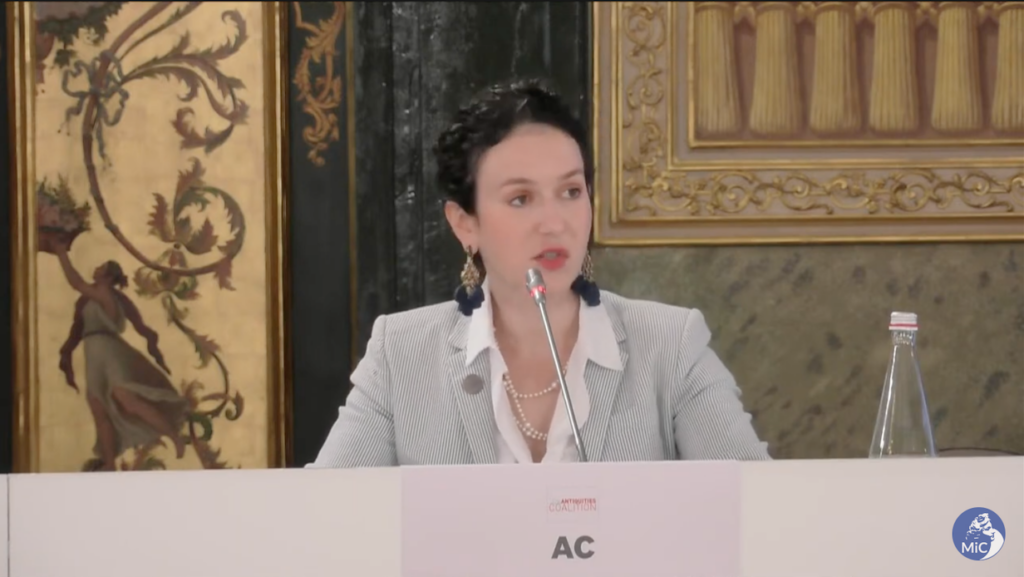Enablers Act Paves the Way to Apply Anti-Money Laundering Laws to Art Dealers Following the Pandora Papers Exposé
WASHINGTON, DC (June 28, 2022) – The Antiquities Coalition commends the House of Representatives for taking an important step to close loopholes that have made the $28 billion American art market the largest unregulated market in the world.
On June 22, 2022, the House Armed Services Committee voted to include the Enablers Act in the National Defense Authorization Act, an annual congressional bill that establishes national security policies and spending. The Enablers Act amends the 52-year-old Bank Secrecy Act (BSA), the country’s primary law on anti-money laundering (AML), by expanding the list of high risk professions and industries who must assist the U.S. government in preventing and detecting financial crimes. Specifically, it adds “persons who trade in works of art, antiques, or collectibles.”
Rep. Tom Malinowski (D-N.J.) and Rep. Joe Wilson (R-S.C.) championed the Enablers Act following the Pandora Papers investigation, which exposed the hidden assets, tax avoidance, and financial crimes of some of the world’s richest and most powerful people. These included prominent figures in the art world like Douglas Latchford, who for decades trafficked “blood antiquities” from Cambodia’s Killing Fields into leading museums, and then hid his millions of dollars in profits through the misuse of offshore accounts, tax havens, and trusts. The Antiquities Coalition worked extensively with the International Consortium of Investigative Journalists (ICIJ) to support Latchford’s unmasking, in one of the many steps the organization is taking to emphasize that cultural racketeering is not a victimless crime.
“The Antiquities Coalition appreciates that the House Armed Services Committee is taking this step to protect the American art market and our economic integrity from criminal misuse,” said Deborah Lehr, Founder and Chairman of the Antiquities Coalition. “Increased transparency is in everyone’s interest–and especially that of responsible dealers, galleries, and auction houses. Recent scandals, law enforcement investigations, and prosecutions have rightfully eroded trust in this multi-billion dollar industry. The Enablers Act is an opportunity for legitimate businesses to grow and remain competitive internationally, where similar protections have already been implemented.”
The Antiquities Coalition’s Financial Crimes Task Force published a comprehensive report in 2020 that detailed how the American art market is dangerously susceptible to money laundering, terrorist financing, sanctions violations, and related crimes. Reframing U.S. Policy on the Art Market: Recommendations for Combating Financial Crimes also provided 44 solutions to address these challenges—the foremost of which was adding dealers in cultural property to the BSA. While what this requires in practice varies, and even if the NDAA is passed would be determined at a later date, the BSA has generally sought to reinforce good business practices like customer due diligence, record keeping, and reporting suspicious activity to the relevant authorities. In addition to expected businesses like banks, the statute already applies to sellers of precious metals, stones, jewels, automobiles, planes, and boats, as well as to casinos, real estate professionals, travel agencies, and pawn shops. Antiquities dealers were added by the NDAA of 2021.
The Antiquities Coalition appreciates that the House Armed Services Committee and the broader House of Representatives are working to address the troubling connection between cultural racketeering and financial crimes like money laundering and terrorist financing. To learn more about the Enablers Act, click here.








